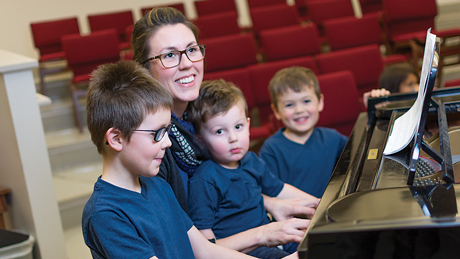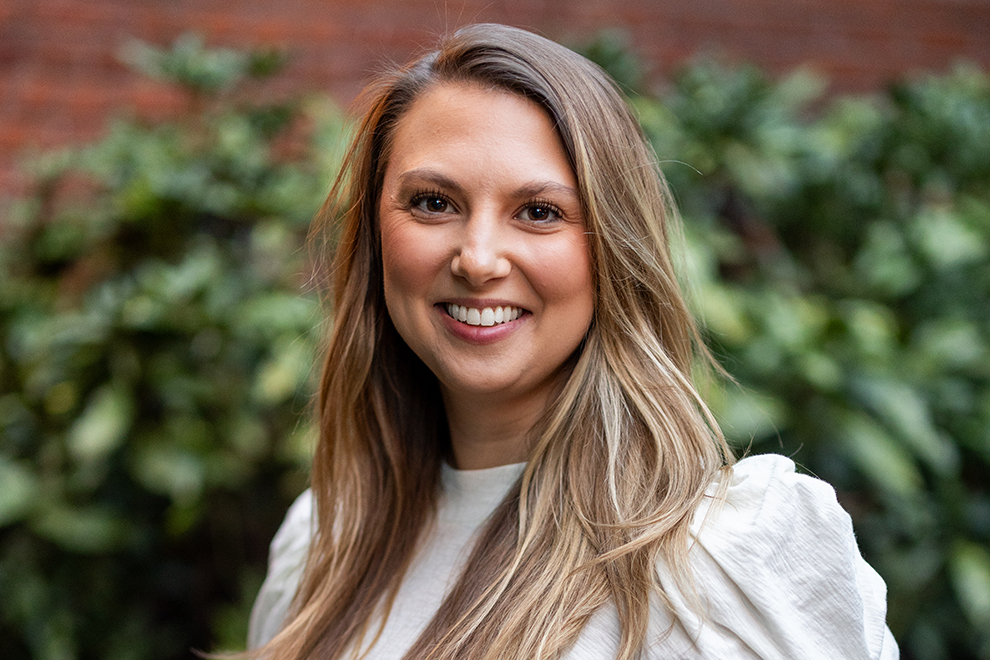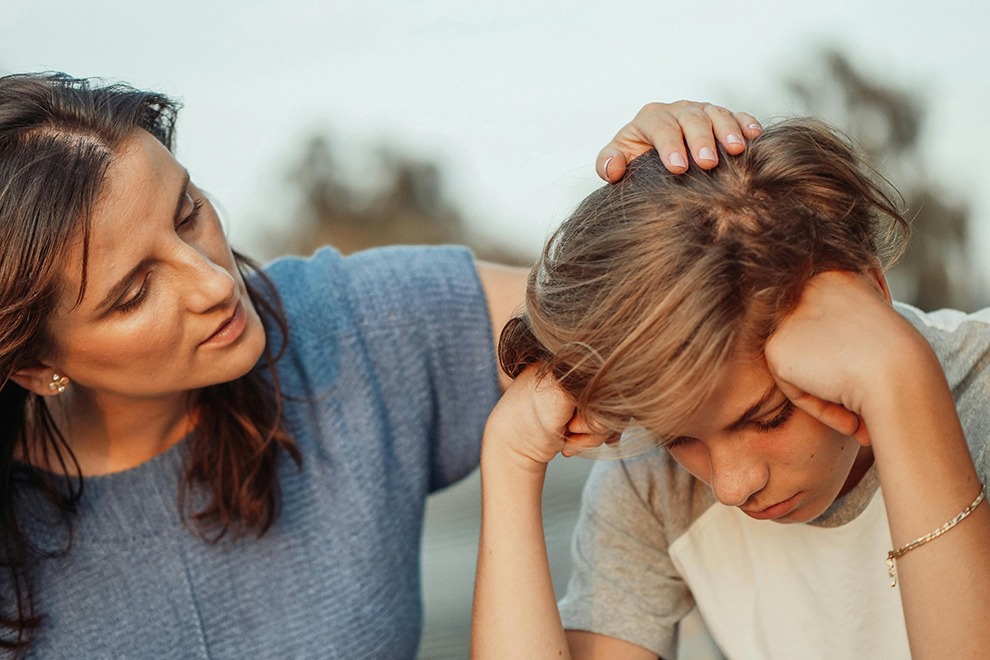After dinner, it’s music time in my house. Sometimes we move the furniture and dance crazily, sometimes the hand drums get played, sometimes we sing together, and sometimes we play the piano. And sometimes, let’s be real, we forget. As I’m a musician, it is true that my kids get more music than others might (the music nerdiness is serious around here), but we’ve learned some lessons along the way that could be helpful to other families interested in the world of music-making.
Whether you consider piano lessons a rite of passage, you’re hoping to have birthed the next Joshua Bell or Taylor Swift, or – best of all – you appreciate music for its lifelong interest and value, extra-curricular music activities are a great investment. So, how do you get started? Here are five tips to help you on your way.
1. When should we start private lessons?
This is a question music teachers get asked a lot! Before we proceed, we’ve got to break music lessons into two hunks: instrumental and vocal. Voice lessons should not be started before eighth grade because of essential developments in the child’s physiology, so young singers should proceed directly to their local children’s choir. For instrumental lessons, though, a typically developing child, older than age six, generally has the reading readiness and cognitive ability to begin. Why reading readiness? Instrument lessons, like piano, violin, or ukulele, often depend on reading or pre-reading skills (like tracking left to right, top to bottom, and counting). If a child has a strong desire to begin without those skills in place, it is important that the teacher be familiar with methods that rely more on the ears than on reading ability (like the Suzuki Method).
Early lessons are not the only answer, however. Research shows that making music with family from the youngest age is an essential element of music training, and I have found this to be true in my own petri dish… ahem, family! My oldest was simply not ready to begin lessons at age six, although we tried. So, I gave it a rest (after pulling out my hair) and trusted in the other musical experiences surrounding him: simple music games, gentle exposure to a variety of (now mostly broken) instruments, and an excellent youth choir. He is now a competent music-maker himself – at the ripe old age of eight – and he, arguably, knows more about music theory than I did as a high school freshman.
2. Which instrument should we choose?
While piano can provide a foundation to studying most other instruments, it may be helpful to consider what instruments are played in your family. Like language, music is absorbed environmentally by children, so if Mom plays the violin, it may be best to start there. Starting from scratch? Consider a double ukulele lesson with Daddy learning alongside Junior. Have a kid who loves to sing? A children’s choir is one of the best places for young musicians to develop, and is the ideal place for the earliest vocal training.
3. Which teacher should we choose?
With hundreds of private music teachers in the Richmond area, it may seem daunting to narrow it down, but ask around. Fellow parents know what they like about certain teachers, and what didn’t work with previous ones. Your child’s school music educator is likely familiar with the teaching styles of many local instructors and music schools, and, knowing your child, can recommend a few good matches. Very often, the best teachers specialize in specific age ranges, so don’t be afraid to ask about their experience with children the same age as yours.
4. Ask for a trial period.
This is often overlooked as a great step toward making the right match, but go ahead and ask about a trial period of lessons before committing to a particular teacher. A great music teacher knows how important it is for teacher and student to be compatible, and she knows that a getting-to-know-you period will benefit both the student and teacher in the long run.
5. Create goals.
This is a fun exercise in inspiration! Draft three goals with your child and present them to your teacher at the start of your trial period. Your teacher will gain valuable insight into what your family wants out of lessons, and will be able to flesh out the goals for you with their musical knowledge. Keep your goals in an accessible place, and reevaluate often with your child and teacher.
Make sure these goals are achievable, and be specific if you can. For example, an achievable goal is not: “We want to see if she has what it takes to make it!” Put dreams of stardom on hold for a minute and concentrate on how learning music will benefit your child this year. These could include: playing Happy Birthday at Grandma’s birthday gathering, or auditioning for a school group. Longer-term goals include participating in festivals, preparing for college auditions (it takes years!), and learning to read music competently.
Of all the fun things your kid could do, why choose music? Studies show that music-making will have a richly beneficial impact on your child. He will learn that hard work improves outcomes. She will learn that not getting something right away doesn’t mean she’ll never get it. They will learn that they each have the power to create something beautiful. And that’s not all, folks – music is fun! This is no more evident than when my family makes our joyful after-dinner noise: the boisterous, exciting, deep, glorious fun of music!





